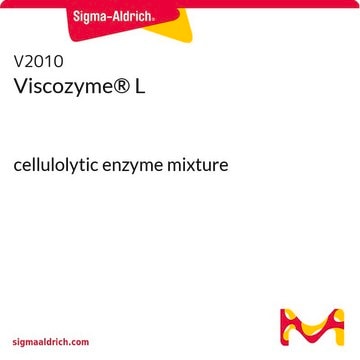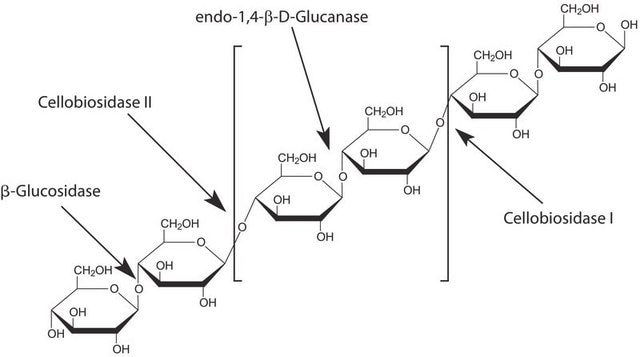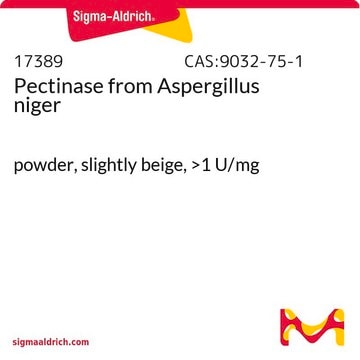C1184
Cellulase from Aspergillus niger
powder, ≥0.3 units/mg solid
Sinonimo/i:
1,4-(1,3:1,4)-β-D-Glucan 4-glucanohydrolase
About This Item
Prodotti consigliati
Forma fisica
powder
Attività specifica
≥0.3 units/mg solid
Caratteristiche più verdi
Design for Energy Efficiency
Learn more about the Principles of Green Chemistry.
sustainability
Greener Alternative Product
Categoria alternativa più verde
, Enabling
Temperatura di conservazione
2-8°C
Cerchi prodotti simili? Visita Guida al confronto tra prodotti
Descrizione generale
Cellulase belongs to the family of glycoside hydrolase, which is secreted by various cellulolytic microorganisms.
Applicazioni
Azioni biochim/fisiol
Definizione di unità
Altre note
Substrato
Avvertenze
Danger
Indicazioni di pericolo
Consigli di prudenza
Classi di pericolo
Resp. Sens. 1
Codice della classe di stoccaggio
11 - Combustible Solids
Classe di pericolosità dell'acqua (WGK)
WGK 1
Punto d’infiammabilità (°F)
Not applicable
Punto d’infiammabilità (°C)
Not applicable
Dispositivi di protezione individuale
dust mask type N95 (US), Eyeshields, Faceshields, Gloves
Certificati d'analisi (COA)
Cerca il Certificati d'analisi (COA) digitando il numero di lotto/batch corrispondente. I numeri di lotto o di batch sono stampati sull'etichetta dei prodotti dopo la parola ‘Lotto’ o ‘Batch’.
Possiedi già questo prodotto?
I documenti relativi ai prodotti acquistati recentemente sono disponibili nell’Archivio dei documenti.
I clienti hanno visto anche
Protocolli
To standardize an enzymatic assay procedure of cellulase.
Il team dei nostri ricercatori vanta grande esperienza in tutte le aree della ricerca quali Life Science, scienza dei materiali, sintesi chimica, cromatografia, discipline analitiche, ecc..
Contatta l'Assistenza Tecnica.








